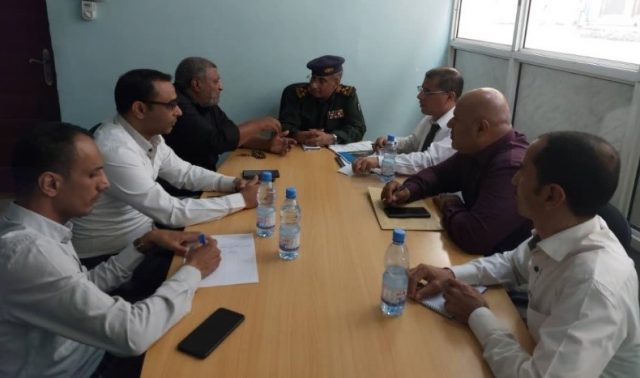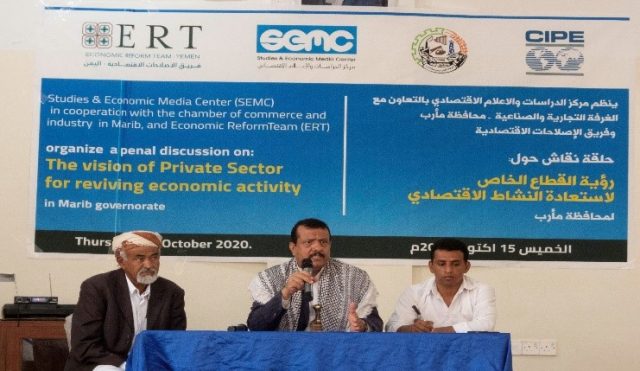Security, stability, and economic growth were the top priorities in a series of discussions that took place recently in Yemen, hosted by CIPE partners the Studies and Economic Media Center (SEMC) and the Economic Reform Team (ERT).
Made up of Yemeni business leaders from various industries, the ERT has been leading the private sector’s response to both the ongoing conflict and the COVID-19 outbreak. To spur economic growth in certain governates, SEMC and the ERT have developed, with input from economic experts, local private sector representatives, and governate leaders, economic recovery strategies that focus on implementing realistic solutions to increase economic output. Events in Taiz, Aden, Marib, Mukalla, and Seiyun were organized to drive the discussion about the economic situation, the recovery plans, and how to best generate stability in these areas.
Even when working under dire conditions like civil war and an ongoing pandemic, business advocacy and public-private dialogue provide a constructive decision-making construct and path to the economic development that communities in Yemen need to secure their future.
In Taiz governate, discussions were held in the town of Al-Turbah and Taiz city proper. Members of the local Chamber of Commerce and Industry (CCI) were in attendance, in addition to private sector representatives, and city and governate leaders.

Both events focused on the security situation in the area, with participants highlighting that securing the governate was the first step to ensuring further economic activity and growth could occur. This has been a concern since the start of the conflict, but with the introduction of the economic recovery strategies, this key step has become a top focus among local private sector and governmental leaders. Beyond security concerns, the participants also stressed the need for increased investment in critical local industries, such as fishing and agriculture, while also providing incentives to small and medium enterprises (SMEs) and entrepreneurs.
To ensure action will follow, a group of private sector leaders met with the Director of the Planning Office and the Superintendent of Security in Taiz governate to discuss the best ways to implement the solutions discussed at the event. The group reached a consensus to appoint a liaison officer to contribute to the speedy resolution of private sector obstacles, a breakthrough for business leaders in the area. This will provide a dedicated channel for the business community to address and resolve concerns with the provincial government.

Similar discussion session took place in the cities of Aden, Marib, Mukalla, and Seiyun in recent weeks. Although security was a main topic of discussion, more localized issues were also highlighted. In Mukalla, there was a focus on the community development aspect of economic growth, with member of the local CCI stressing the need for an increase in the standard of living. In Marib, the Governor Abd Rabbo Miftah stressed the need for partnership between the private sector and the government, as public-private projects have had success in the past and should serve as a model going forward.
These events not only highlighted the long road of economic recovery that lies ahead for each governate, but they also showed how effective, solutions-based dialogue between the private and public sectors can result in positive steps forward. Even when working under dire conditions like civil war and an ongoing pandemic, business advocacy and public-private dialogue provide a constructive decision-making construct and path to the economic development that communities in Yemen need to secure their future.
Published Date: December 18, 2020
